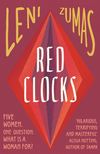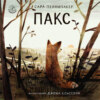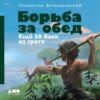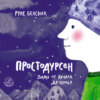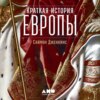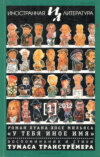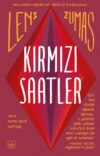Czytaj książkę: «Red Clocks»

COPYRIGHT
The Borough Press
An imprint of HarperCollinsPublishers
1 London Bridge Street
London SE1 9GF
First published by Lee Boudreaux Books 2018
Published by HarperCollinsPublishers 2018
Copyright © Leni Zumas 2018
Jacket design © HarperCollinsPublishers Ltd 2018
Jacket design and illustration © Lauren Harms
Leni Zumas asserts the moral right to be identified as the author of this work
A catalogue record for this book is available from the British Library
This novel is entirely a work of fiction. The names, characters and incidents portrayed in it are the work of the author’s imagination. Any resemblance to actual persons, living or dead, events or localities is entirely coincidental.
All rights reserved under International and Pan-American Copyright Conventions. By payment of the required fees, you have been granted the non-exclusive, non-transferable right to access and read the text of this e-book on-screen. No part of this text may be reproduced, transmitted, down-loaded, decompiled, reverse engineered, or stored in or introduced into any information storage and retrieval system, in any form or by any means, whether electronic or mechanical, now known or hereinafter invented, without the express written permission of HarperCollins e-books
Source ISBN: 9780008209827
Ebook Edition © March 2018 ISBN: 9780008209858
Version: 2017-11-01
DEDICATION
for Luca and Nicholas
per sempre
EPIGRAPH
For nothing was simply one thing. The other
Lighthouse was true too.
Virginia Woolf
Contents
Cover
Title Page
Copyright
Dedication
Epigraph
The Biographer
The Mender
The Daughter
The Wife
The Biographer
The Mender
The Daughter
The Wife
The Biographer
The Mender
The Daughter
The Wife
The Biographer
The Mender
The Daughter
The Wife
The Biographer
The Daughter
The Mender
The Wife
The Biographer
The Daughter
The Mender
The Wife
The Biographer
The Daughter
The Mender
The Wife
The Daughter
The Biographer
The Wife
The Mender
The Biographer
The Biographer
The Daughter
The Mender
The Wife
The Biographer
The Daughter
The Wife
The Mender
The Daughter
The Biographer
The Wife
The Mender
The Biographer
The Daughter
The Wife
The Mender
The Biographer
The Mender
The Daughter
The Biographer
The Daughter
The Wife
The Biographer
The Mender
The Daughter
The Biographer
Notes
Acknowledgements
About the Author
Also by Leni Zumas
About the Publisher
Born in 1841 on a Faroese sheep farm,
The polar explorer was raised on a farm near
In the North Atlantic Ocean, between Scotland and Iceland, on an island with more sheep than people, a shepherd’s wife gave birth to a child who would grow up to study ice.
Pack ice once posed such a danger to ships that any researcher who knew the personality of this ice could predict its behavior was valuable to the companies and governments that funded polar expeditions.
In 1841, on the Faroe Islands, in a turf-roofed cottage, in a bed that smelled of whale fat, of a mother who had delivered nine children and buried four, the polar explorer Eivør Mínervudottír was born.
THE BIOGRAPHER
In a room for women whose bodies are broken, Eivør Mínervudottír’s biographer waits her turn. She wears sweatpants, is white skinned and freckle cheeked, not young, not old. Before she is called to climb into stirrups and feel her vagina prodded with a wand that makes black pictures, on a screen, of her ovaries and uterus, the biographer sees every wedding ring in the room. Serious rocks, fat bands of glitter. They live on the fingers of women who have leather sofas and solvent husbands but whose cells and tubes and bloods are failing at their animal destiny. This, anyway, is the story the biographer likes. It is a simple, easy story that allows her not to think about what’s happening in the women’s heads, or in the heads of the husbands who sometimes accompany them.
Nurse Crabby wears a neon-pink wig and a plastic-strap contraption that exposes nearly all of her torso, including a good deal of breast. “Happy Halloween,” she explains.
“And to you,” says the biographer.
“Let’s go suck out some lineage.”
“Pardon?”
“Anagram for blood.”
“Hmm,” says the biographer politely.
Crabby doesn’t find the vein straight off. Has to dig, and it hurts. “Where are you, mister?” she asks the vein. Months of needlework have streaked and darkened the insides of the biographer’s elbows. Luckily long sleeves are common in this part of the world.
“Aunt Flo visited again, did she?” says Crabby.
“Vengefully.”
“Well, Roberta, the body’s a riddle. Here we go—got you.” Blood swooshes into the chamber. It will tell them how much follicle-stimulating hormone and estradiol and progesterone the biographer’s body is making. There are good numbers and there are bad. Crabby drops the tube into a rack alongside other little bullets of blood.
Half an hour later, a knock on the exam-room door—a warning, not a request for permission. In comes a man wearing leather trousers, aviator sunglasses, a curly black wig under a porkpie hat.
“I’m the guy from that band,” says Dr. Kalbfleisch.
“Wow,” says the biographer, bothered by how sexy he’s become.
“Shall we take a look?” He settles his leather on a stool in front of her open legs, says “Oops!” and removes the sunglasses. Kalbfleisch played football at an East Coast university and still has the face of a frat boy. He is golden skinned, a poor listener. He smiles while citing bleak statistics. The nurse holds the biographer’s file and a pen to write measurements. The doctor will call out how thick the lining, how large the follicles, how many the follicles. Add these numbers to the biographer’s age (42) and her level of follicle-stimulating hormone (14.3) and the temperature outside (56) and the number of ants in the square foot of soil directly beneath them (87), and you get the odds. The chance of a child.
Snapping on latex gloves: “Okay, Roberta, let’s see what’s what.”
On a scale of one to ten, with ten being the shrill funk of an elderly cheese and one being no odor at all, how would he rank the smell of the biographer’s vagina? How does it compare with the other vaginas barreling through this exam room, day in, day out, years of vaginas, a crowd of vulvic ghosts? Plenty of women don’t shower beforehand, or are battling a yeast, or just happen naturally to stink in the nethers. Kalbfleisch has sniffed some ripe tangs in his time.
He slides in the ultrasound wand, dabbed with its neon-blue jelly, and presses it up against her cervix. “Your lining’s nice and thin,” he says. “Four point five. Right where we want it.” On the monitor, the lining of the biographer’s uterus is a dash of white chalk in a black swell, hardly enough of a thing, it seems, to measure, but Kalbfleisch is a trained professional in whose expertise she is putting her trust. And her money—so much money that the numbers seem virtual, mythical, details from a story about money rather than money anyone actually has. The biographer, for example, does not have it. She’s using credit cards.
The doctor moves to the ovaries, shoving and tilting the wand until he gets an angle he likes. “Here’s the right side. Nice bunch of follicles …” The eggs themselves are too small to be seen, even with magnification, but their sacs—black holes on the grayish screen—can be counted.
“Keep our fingers crossed,” says Kalbfleisch, easing the wand back out.
Doctor, is my bunch actually nice?
He rolls away from her crotch and pulls off his gloves. “For the past several cycles”—looking at her chart, not at her—“you’ve been taking Clomid to support ovulation.”
This she does not need to be told.
“Unfortunately Clomid also causes the uterine lining to shrink, so we advise patients not to take it for long stretches of time. You’ve already done a long stretch.”
Wait, what?
She should have looked it up herself.
“So for this round we need to try a different protocol. Another medication that’s been known to improve the odds in some elderly pregravid cases.”
“Elderly?”
“Just a clinical term.” He doesn’t glance up from the prescription he’s writing. “She’ll explain the medication and we’ll see you back here on day nine.” He hands the file to the nurse, stands, and makes an adjustment to his leather crotch before striding out.
Asshole, in Faroese: reyvarhol.
Crabby says, “So you need to fill this today and start taking it tomorrow morning, on an empty stomach. Every morning for ten days. While you’re on it, you might notice a foul odor from the discharge from your vagina.”
“Great,” says the biographer.
“Some women say the smell is quite, um, surprising,” she goes on. “Even actually disturbing. But whatever you do, don’t douche. That’ll introduce chemicals into the canal that if they make their way through the cervix can, you know, compromise the pH of the uterine cavity.”
The biographer has never douched in her life, nor does she know anyone who has.
“Questions?” says the nurse.
“What does”—she squints at the prescription—“Ovutran do?”
“It supports ovulation.”
“How, though?”
“You’d have to ask the doctor.”
She is submitting her area to all kinds of invasion without understanding a fraction of what’s being done to it. This seems, suddenly, terrible. How can you raise a child alone if you don’t even find out what they’re doing to your area?
“I’d like to ask him now,” she says.
“He’s already with another patient. Best thing to do is call the office.”
“But I’m here in the office. Can’t he—or is there someone else who—”
“Sorry, it’s an extra-busy day. Halloween and all.”
“Why does Halloween make it busier?”
“It’s a holiday.”
“Not a national holiday. Banks are open and the mail is delivered.”
“You will need,” says Crabby slowly, carefully, “to call the office.”
The biographer cried the first time it failed. She was waiting in line to buy floss, having pledged to improve her dental hygiene now that she was going to be a parent, and her phone rang: one of the nurses, “I’m sorry, sweetie, but your test was negative,” the biographer saying thank you, okay, thank you and hitting END before the tears started. Despite the statistics and Kalbfleisch’s “This doesn’t work for everyone,” the biographer had thought it would be easy. Squirt in millions of sperm from a nineteen-year-old biology major, precisely timed to be there waiting when the egg flies out; sperm and egg collide in the warm tunnel—how could fertilization not happen? Don’t be stupid anymore, she wrote in her notebook, under Immediate action required.
She drives west on Highway 22 into dark hills dense with hemlock, fir, and spruce. Oregon has the best trees in America, soaring and shaggy winged, alpine sinister. Her tree gratitude mutes her doctor resentment. Two hours from his office, her car crests the cliff road and the church steeple juts into view. The rest of town follows, hunched in rucked hills sloping to the water. Smoke coils from the pub chimney. Fishing nets pile on the shore. In Newville you can watch the sea eat the ground, over and over, unstopping. Millions of abyssal thalassic acres. The sea does not ask permission or wait for instruction. It doesn’t suffer from not knowing what on earth, exactly, it is meant to do. Today its walls are high, white lather torn, crashing hard at the sea stacks. “Angry sea,” people say, but to the biographer the ascribing of human feeling to a body so inhumanly itself is wrong. The water heaves up for reasons they don’t have names for.
Central Coast Regional H.S. seeks history teacher (U.S./World). Bachelor’s degree required. Location: Newville, Oregon, fishing village on quiet ocean harbor, migrating whales. Ivy League–educated principal is committed to creating dynamic, innovative learning environment.
The biographer applied because of quiet ocean harbor and no mention of teaching experience. Her brief interview consisted of the principal, Mr. Fivey, plot-summarizing his favorite seafaring novels and mentioning twice the name of the college he had gone to. He said she could do the teacher-certification course over two summers. For seven years she has lived in the lee of fog-smoked evergreen mountains, thousand-foot cliffs plunging straight down to the sea. It rains and rains and rains. Log trucks stall traffic on the cliff road, locals catch fish or make things for tourists, the pub hangs a list of old shipwrecks, the tsunami siren is tested monthly, and students learn to say “miss” as if they were servants.
She starts class by following her daily plan, but when she sees chins mashing into fists, she decides to abandon it. Tenth-grade global history, the world in forty weeks, with a foolish textbook she is contractually obliged to use, can’t be stood without detours. These kids, after all, have not been lost yet. Staring up at her, jaws rimmed with baby fat, they are perched on the brink of not giving a shit. They still give a shit, but not, most of them, for long. She instructs them to close their books, which they are happy to do. They watch her with a new stillness. They will be told a story, can be children again, of whom nothing is asked.
“Boadicea was queen of a Celtic tribe called the Iceni in what is now Norfolk, England. The Romans had invaded a while back and were ruling the land. Her husband died and left his fortune to her and their daughters, but the Romans ignored his will, took the fortune, flogged Boadicea, and raped the daughters.”
One kid: “What’s ‘flog’?”
Another: “Beat the frock out of.”
“The Romans had screwed her royally”—somebody laughs softly at this, for which the biographer is grateful—“and in 61 CE she led her people in rebellion. The Iceni fought hard. They forced the Romans all the way back to London. But bear in mind that the Roman soldiers had lots of incentive to win, because if they didn’t, they could expect to be cooked on skewers and/or boiled to death, after seeing their own intestines being pulled out of their bodies.”
“That rules,” says a boy.
“Eventually the Roman forces were too much for the Iceni. Boadicea either poisoned herself to avoid capture or got sick; either way, she died. The win column isn’t the point. The point is …” She stops, aware of twenty-four little gazes.
Into the silence the soft laugher ventures: “Don’t frock with a woman?”
They like this. They like slogans.
“Well,” the biographer says, “sort of. But more than that. We also have to consider—”
The bell.
A burst of scraping and sliding, bodies glad to go. “Bye, miss!” “Have a good day, miss.”
The soft laugher, Mattie Quarles, idles near the biographer’s desk. “So is that where the word ‘bodacious’ comes from?”
“I wish I could say yes,” says the biographer, “but ‘bodacious’ originated in the nineteenth century, I think. Mix of ‘bold’ and ‘audacious.’ Good instinct, though!”
“Thanks, miss.”
“You really don’t need to call me that,” says the biographer for the seven thousandth time.
After school she stops at the Acme, grocery and hardware and drugstore combined. The pharmacist’s assistant is a boy—now a young man—she taught in her first year at Central Coast, and she hates the moment each month when he hands her the white bag with the little orange bottle. I know what this is for, his eyes say. Even if his eyes don’t actually say that, it’s hard to look at him. She brings other items to the counter (unsalted peanuts, Q‑tips) as if somehow to disguise the fertility medication. The biographer can’t recall his name but remembers admiring, in class, seven years ago, his long black lashes—they always looked a little wet.
Waiting on the hard little plastic chair, under elevator music and fluorescent glare, the biographer takes out her notebook. Everything in this notebook must be in list form, and any list is eligible. Items for next food shop. Kalbfleisch’s necktie designs. Countries with most lighthouses per capita.
She starts a new one: Accusations from the world.
1. You’re too old.
2. If you can’t have a child the natural way, you shouldn’t have one at all.
3. Every child needs two parents.
4. Children raised by single mothers are more liable to rape/murder/drug-take/score low on standardized tests.
5. You’re too old.
6. You should’ve thought of this earlier.
7. You’re selfish.
8. You’re doing something unnatural.
9. How is that child going to feel when she finds out her father is an anonymous masturbator?
10. Your body is a grizzled husk.
11. You’re too old, sad spinster!
12. Are you only doing this because you’re lonely?
“Miss? Prescription’s ready.”
“Thank you.” She signs the screen on the counter. “How’s your day been?”
Lashes turns up his palms at the ceiling.
“If it makes you feel any better,” says the biographer, “this medication is going to make me have a foul-smelling vaginal discharge.”
“At least it’s for a good cause.”
She clears her throat.
“That’ll be one hundred fifty-seven dollars and sixty-three cents,” he adds.
“Pardon me?”
“I’m really sorry.”
“A hundred and fifty-seven dollars? For ten pills?”
“Your insurance doesn’t cover it.”
“Why the eff not?”
Lashes shakes his head. “I wish I could, like, slip it to you, but they’ve got cameras on every inch of this bitch.”
The polar explorer Eivør Mínervudottír spent many hours, as a child, in the sea-washed lighthouse whose keeper was her uncle.
She knew not to talk while he was making entries in the record book.
Never to strike a match unsupervised.
Red sky at night, sailor’s delight.
To keep her head low in the lantern room.
To pee in the pot and leave it, and if she did caca, to wrap it in fish paper for the garbage box.
THE MENDER
From the halt hen two eggs come down, one cracked, one sound. “Thank you,” the mender tells the hen, a Dark Brahma with a red wattle and brindled feathers. Because she limps badly—is not one of the winners—this hen is the mender’s favorite. A daily happiness to feed her, save her from foxes and rain.
Sound egg in her pocket, she pours the goats’ grain. Hans and Pinka are out rambling but will be home soon. They know she can’t protect them if they ramble too far. Three shingles have come off the goat-shed roof; she needs nails. Under the shed there used to sleep a varying hare. Brown in summer, white in winter. He hated carrots and loved apples, whose seeds, poisonous to rabbits, the mender made sure to remove. The hare was so cuddly she didn’t care that he stole alfalfa from the goats or strewed poo pellets on her bed when she let him inside. One morning she found his body ripped open, a sack of furry blood. Rage poured up her throat at the fox or coyote, the bobcat, you took him, but they were only feeding themselves, you shouldn’t have took him, prey is scarce in winter, but he was mine. She cried while digging. Laid the hare beside her aunt’s old cat, two small graves under the madrone.
In the cabin the mender stirs the egg with vinegar and shepherd’s purse for the client who’s coming later, an over-bleeder. The drink will staunch her clotty, aching flow. She’s got no job and no insurance. I can pay you with batteries, her note said. Vinegary egg screwed tight in a glass jar and tucked into the mini fridge, beside a foil-wrapped wedge of cheddar. The mender wants the cheese right now, this minute, but cheese is only for Fridays. Black licorice nibs are for Sundays.
She mostly eats from the forest. Watercress and bitter cress, dandelion, plantain. Glasswort and chickweed. Bear grass, delicious when grilled. Burdock root to mash and fry. Miner’s lettuce and stinging nettle and, in small quantities, ghost pipe. (She loves the white stalks boiled with lemon and salt, but too much ghost pipe can kill you.) And she gleans from orchards and fields: hazelnuts, apples, cranberries, pears. If she could live off the land alone, without person-made things, she would. She hasn’t figured out how yet, but that doesn’t mean she won’t. Show them how Percivals do.
Her mother was a Percival. Her aunt was a Percival. The mender has been a Percival since age six, when her mother left her father. Which was because her father went away most Friday afternoons and didn’t come back until Monday and never said why. “A woman wants to know why,” said the mender’s mother. “At least give me that, fuckermo. Names and places! Ages and occupations!” They drove west across Oregon’s high desert, over the Cascade Mountains, mother smoking and daughter spitting out the window, to the coast, where the mender’s aunt ran a shop that sold candles, runes, and tarot packs. On the first night, the mender asked what that noise was and learned it was the ocean. “But when does it stop?” “Never,” said her aunt. “It’s perpetual, though impermanent.” And the mender’s mother said, “Pretentious much?”
The mender would take pretentious any day over high.
She lies naked with the cat by the stove’s heat, hard steady rain on the roof and the woods black and the foxes quiet, owlets asleep in their nest box. Malky leaps from her lap, paws at the door. “You want to get soaked, little fuckermo?” Gold-splashed eyes watch her solemnly. Gray flanks tremble. “You have a girlfriend you need to meet?” She shakes off the blanket and opens the door, and he flashes out.
Whenever Lola came over, Malky hid; she thought the mender lived in the cabin alone. “Don’t you get frightened,” said Lola, “all the way up here in the middle of nothing?”
Silly bitch, trees are not nothing. Nor are cats, goats, chickens, owls, foxes, bobcats, black-tailed deer, long-eared bats, red-tailed hawks, dark-eyed juncos, bald-faced hornets, varying hares, mourning cloak butterflies, black vine weevils, and souls fled from their mortal casings.
Alone human-wise.
She hasn’t heard from Lola since that day of the shouting. No notes left in her mailbox at the P.O., no visits. It was more than shouting. A fight. Lola, in her adorable green dress, was fighting. The mender was not. The mender barely said a word.
Past noon, but the goats aren’t home yet. Cramp of worry. Last year they wrecked a campsite near the trail. Not their fault: some dumb tourist left food all over the woods. When the mender found them, the guy was pointing a rifle at Hans. “You better keep them on your property from here on out,” he said, “because I love goat stew.”
In Europe they once held trials for misbehaving animals. Wasn’t just the witches they hanged. A pig was sent to the gallows for eating a child’s face, a mule roasted alive for having been penetrated by its human master. For the unnatural act of laying an egg, a rooster was burned at the stake. Bees found guilty of stinging a man to death were suffocated in the hive, their honey destroyed, lest murder honey infect the mouths that ate it.
She with murder honey on her teeth shall bleed salt from where two curves of thigh skin meet. Tasting honey from the body of a bee with devil-face shall start this salty blood. Faces of bees who have done murder do resemble those of starving dogs, whose eyes grow more human looking as they starve. Apis mellifera, Apis diabolus. If a town be swarmed by bees with devil-face, and those bees do drip honey into open mouths, the body of a woman with honey tooth, bleeding thigh salt, shall be lashed to whatever stake will hold her. The bee swarm shall be gathered in a barrel and dumped upon the fire that eats her. The honey teeth do catch flame first, sparks of blue at the white before the red tongue catches too, and the lips. Bees’ bodies when burning do smell of hot marrow; the odor makes onlookers vomit, yet still they look on.

